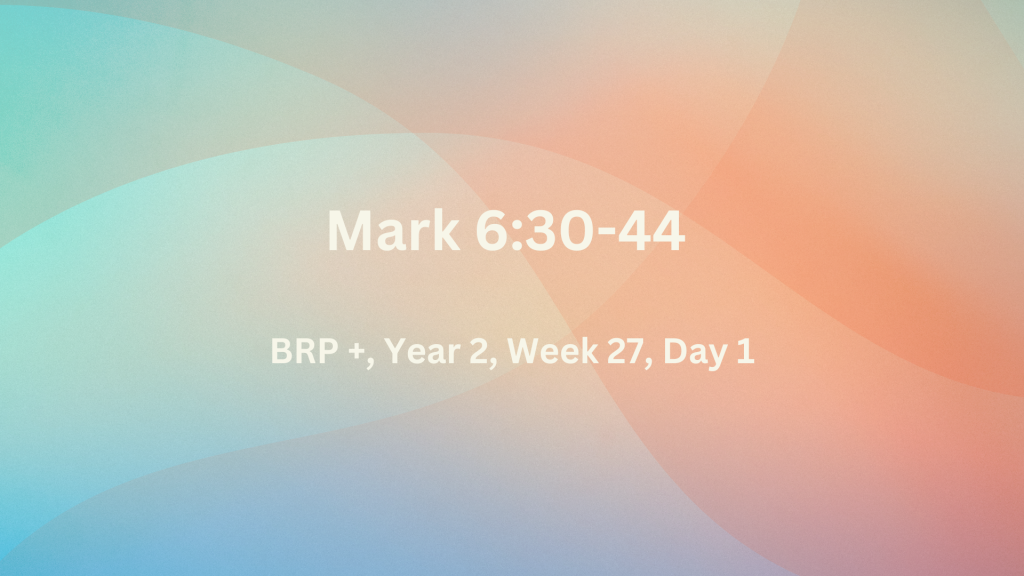Mark 6:30-44
Q.1. Where did Jesus go in the boat with the Twelve? Were they successful at getting away from the crowds? How did Jesus respond? What did the twelve learn? – (Mk.6:30-34)
Jesus had commissioned the twelve apostles, and they now – gathered together with Jesus; and they reported to Him all that they had done and taught (Mk.6:30). However, they were constantly interrupted, so that they had not had time to eat. Jesus suggested, – Come away by yourselves to a secluded place and rest a while (Mk.6:31). Not to be denied, the people went by foot ahead of them (Mk.6:32). When Jesus and the disciples reached the shore, Jesus – … saw a large crowd, and He felt compassion for them because they were like sheep without a shepherd; and He began to teach them many things (Mk.6:34). Though tired, He was touched by the eagerness of the needy crowd. Jesus demonstrated that ministry demanded personal sacrifice and was ultimately about the needs of other people.
Q.2. Did Jesus agree with the plan of the apostles? What did they think about His? How well was the crowd fed? What part was played by the twelve apostles? – (Mk.6:35-44)
At the end of the day, the disciples suggested that Jesus should send the crowds home, since there was no food for so many people in the isolated place. (Mk.6:35-36). Jesus placed the responsibility to feed the crowd back on His disciples. However, they only had five rolls and two fish, and reasoned that it would cost a fortune to feed so many people (Mk.6:37-38). Jesus then took charge and commanded the people to gather in groups on the green grass. He took the meagre offerings, – and looking up toward heaven, He blessed the food and broke the loaves and He kept giving them to the disciples to set before them; and He divided up the two fish among them all (Mk.6:41). Five thousand men, besides women and children ate their fill. Even then, there were twelve full baskets of bread and fish to spare (Mk.6:42-44). Jesus saw to it that His disciples were involved in the distribution and collection of the leftovers. They participated as they were able.

